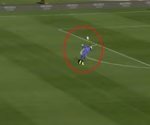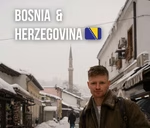
Bosnia cannot solve its migrant crisis because the problem is coming to the country from two EU countries, Greece and Bulgaria, and the European Union is the one that should be solving it, Bosnia’s Security Minister, Dragan Mektic, told N1 on Tuesday.
Since the beginning of 2018, the number of migrants entering Bosnia has drastically increased. Although the migrants intend only to pass through Bosnia on their way to western Europe, the surrounding countries have closed their borders, leaving thousands of migrants stranded in Bosnia.
Since most of them try to cross the border toward Croatia, they end up in the northwestern region of the Una-Sana Canton (USK) after Croatian Border Police turn them back. The USK towns of Bihac, Cazin and Velika Kladusa are strongly affected by the situation and the local population is unhappy with how the Government is handling it.
Mayors from the USK even recently staged a protest in front of the building of the state Parliament in Sarajevo over it.
"I fully understand the problem in USK," the Minister told N1.
"We will hardly be able to prevent the migrants from coming to USK, as the path toward Slovenia is the quickest from there," Mektic said. "We need to focus on the best ways to handle the crisis in USK, so this problem does not affect life in the local communities," he added.
On the other hand, the crisis is also being used for political purposes, he said.
"Everyone in the USK area is turning the migrant problem into a political campaign, in order to portray how they did something while others did nothing. There is no unified stance of political actors, they don’t propose the same solutions," he said.
The general election will take place in October.
The problem of migrants in the canton was partly solved with the establishment of several migrant centres, but Bosnia cannot do much without help from Europe, as "the process that is burdening us originates from two European Union countries, Greece and Bulgaria," he said.
"The problem revolves around the European Union. We cannot solve a European problem," the Minister stressed.
The Government of the Serb-dominated semi-autonomous entity in Bosnia, Republika Srpska (RS), has recently established a coordination body that would monitor the movements of the migrants throughout the RS.
"I have nothing against any local community initiating the establishment of some kind of an operative body that would tend to migration, but it is important for us to coordinate and make decisions together," Mektic said. "We should check how this operative body could help decrease the entries of illegal migrants into Bosnia," he said but added that he does "not expect anything spectacular" from the new RS body.
Mektic denied that one of the locations chosen for the establishment of a migrant centre, the Usivak barracks, is ridden with land mines, calling it "media speculation."
"I read in the newspapers that we are driving refugees into a minefield. That makes no sense," he said, adding that the state body that deals with land mine clearance, BH MAC, had checked the area and confirmed it was "clean."
The Minister is currently facing calls for his dismissal that are coming from political opponents in the state Parliament. As stated by a parliamentarian from the Alliance for Independent Social Democrats (SNSD) end of July, the reason for the initiative is, among other, Mektic’s handling of the migrant crisis.
The Minister said those initiatives are not worrying him.
"I did not take on the position of a Minister because of some privileges, but to try to do something, most of all, strengthen the state’s rule of law," he said, adding that Bosnian politicians don’t support "any forces or agencies" who work toward that goal.
Mektic is a member of the Serb Democratic Party (SDS), which is part of the Alliance for Changes, a coalition of parties that oppose the SNSD. The SNSD holds power in the RS, but politicians from the Alliance for Changes represent Bosnian Serbs at the state level.
In his interview, Mektic criticized the SNSD strongly, calling it a "deception."
"They have cheated and deceived the people several times, they have impoverished them and taken away their rights, and worst of all, they have made young people leave Republika Srpska," he said, adding that "only those who have to and who have nowhere to go stay here."
The SNSD, he said, always relies on nationalistic and warmongering rhetoric ahead of an election, and it always "invents external and internal threats and enemies."
Mektic said that in this way the SNSD manages to make the population forget everyday problems until the election is over.
The Alliance for Changes, he said, wants "a new Republika Srpska," with strong rule of law and "honest politicians."
"Why do we need a Republika Srpska where the people have been impoverished and robbed?" he said.
Kakvo je tvoje mišljenje o ovome?
Učestvuj u diskusiji ili pročitaj komentare





 Srbija
Srbija
 Hrvatska
Hrvatska
 Slovenija
Slovenija



























































